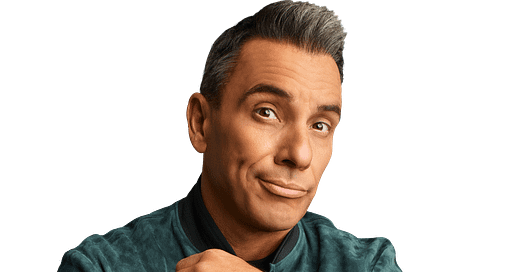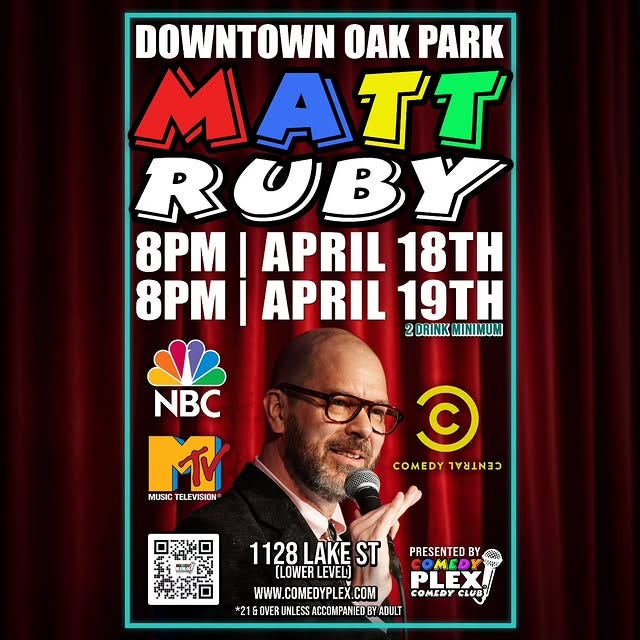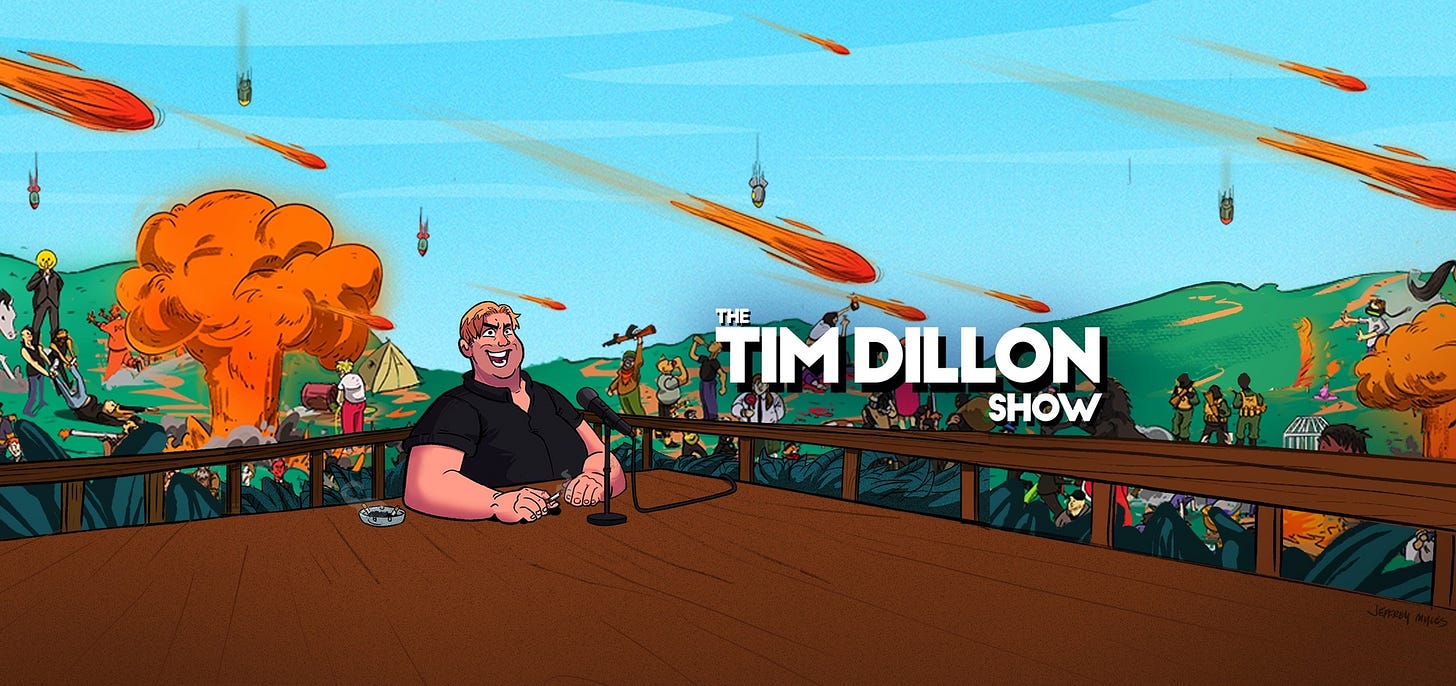What a comedy club GM wishes comedians knew
When to move to the coast, how to approach the business side of comedy, and more.
Chicago this weekend! Get tickets here.
A 2021 interview with Brian Morton (GM of Zanies Old Town in Chicago) in The Comedy Gazelle is filled with gems. Some excerpts below:
What kind of advice would you give to a newer comic that can’t get on stage at a club? How do you develop material as someone who’s just starting out?
I think you just have to do it. It all depends on how bad you really want it. What do you want out of comedy is a huge question a lot of people don't really ask themselves. And that might evolve over time too, so I think it’s good to constantly check back in with yourself: “What do I actually want out of this?” Nothing’s fair, but you will get what you put into it. The hard work that you put in will pay off, but you have to keep doing it, and consistency is key. Get up anywhere you can, take any gig you can, cause no matter what, you’re gonna learn from it. Just constantly improve your craft. The more tools in your belt, the better off you’ll be. It’s not something that happens in one, two, five, or 10 years. If you wanna be here and you wanna do it, you'll do it forever. And you have to consistently keep doing it.
Do you think there's anything Chicago comics can do to increase their draw? How do you take that next step?
Everybody has the internet. If you’re not spending time creating things on the internet — during the pandemic, that’s all everybody had. So you saw these people who just used the internet and increased their following. I think you kind of need to figure out your lane and what it is, and use the internet.
What are some qualities you look for when working with someone?
I like people who are easy to work with. Being able to go with the flow, no matter what that means. It’s a live show, so sometimes everything won’t go right. I think just being nice, that’s a huge part of it. Sometimes comics aren't approachable people, I totally get that. But be nice. Also, don't make decisions without running shit by the club. Sometimes I’ve had comics that are the headliner, they'll just decide “I’m putting this person on the show” and not say anything.
Is there anything you’d change about the [Chicago] scene if you could?
I always think I wish more industry was here, but that might change the scene itself. I do think industry is always a good thing and I’d love that aspect of it. But it might stop people from growing a little bit. I think it’s still a necessity to go to a coast, but I think it’s really good to get good here. Get good enough here where you’re not jaded, though. A lot of times people get good then get jaded because they stop progressing. It’s like, once you feel you're stagnant and not progressing, move. Don't move somewhere without a plan, but you need to always challenge yourself. I see a lot of comics become jaded, they don’t wanna go for it anymore because they’ve reached whatever the pinnacle is here and it’s scary as fuck for them to go start somewhere else. But you're not really starting somewhere else because you already have all your tools.
I know you’re big on the business side of comedy. Why do you think that's so important for comics to learn?
I think a lot of people ignore the business side of it and then they get fucked in the ass for 12 years and they're like, “Why am I getting fucked in the ass?” It’s like dude, you're not paying attention to the business side of it. And the business side doesn't just mean Comedy Central or HBO, it could be your own personal business. Go look up how much Tim Dillon makes on Patreon. He doesn't have a TV show, everything that he’s gotten hasn't come his way. Yeah he’s on Rogan now, but he built himself up to get there. 93K a month, just from his Patreon. There’s things like this that are out there that you can build yourself. Study the business, because at the end of the day, you don’t want a fucking job. Your goal is to live off of comedy, whatever that means. There's so many different lanes in comedy that people get caught up in the idea of “Okay, I’m a host, I’m a feature, I’m a headliner. I’m a headliner, then I’m a national headliner.” That’s their idea, but it doesn't work like that. There's all these different ways to make money. For some reason comics are like, “The art, the art, the art.” I’m all about the art, but you need to be able to support yourself to do this art. You don't wanna be making shit on Etsy when you’re 55. You wanna fund your actual career using your career. The business side is everything. Get great at your craft, but understand there are so many lanes where you can make money.
What do you think people can do if they’re not as strong in the business aspect or don’t have that mindset?
I think a lot of it is just look at what people do that you like. Find whoever it is that you like as a comic and study everything that they did. If you're a fan of Big Jay Oakerson, figure out what he did. He has four podcasts and a radio show. That's how he makes a lot of his money. Find somebody that you like and study their business side of it. Look at everybody. Read every book you can on comedy, the biographies, learn the pitfalls, read agents’ books. You're getting into entertainment, you're getting into the industry, so learn it. You're going to be better off. You have to learn and I think a lot of people just skip that side.
Any books you'd recommend?
Figure out a biography of a comedian you like. Sebastian Maniscalco talked about one thing with Pat McGann. Pat wrote him a personal thank you letter. That's what endeared him to Pat and brought him on the road. Now in any other life would you think to do that? Probably not. But now that you read it in the book, that’s in the back of your mind, so that might help you. You might get a gig just off writing a thank you letter.
I think that’s really interesting. A thank you letter, people might not even consider that “the business side of comedy.”
That was one thing that changed when I came to Zanies. I started getting thank you letters from comedians and gifts and things like that. And of course I’m gonna remember it. And I’m not asking for gifts, it’s just something that has happened. And I’m like that’s really sweet. The idea that you took your time out and you got me something personalized that you know I’m going to enjoy, that’s great. I think that part is important.







dear matt,
thanks for sharing this!
two of my favorite nuggets from it:
"I think just being nice, that’s a huge part of it."
"You might get a gig just off writing a thank you letter."
love it!
love
myq